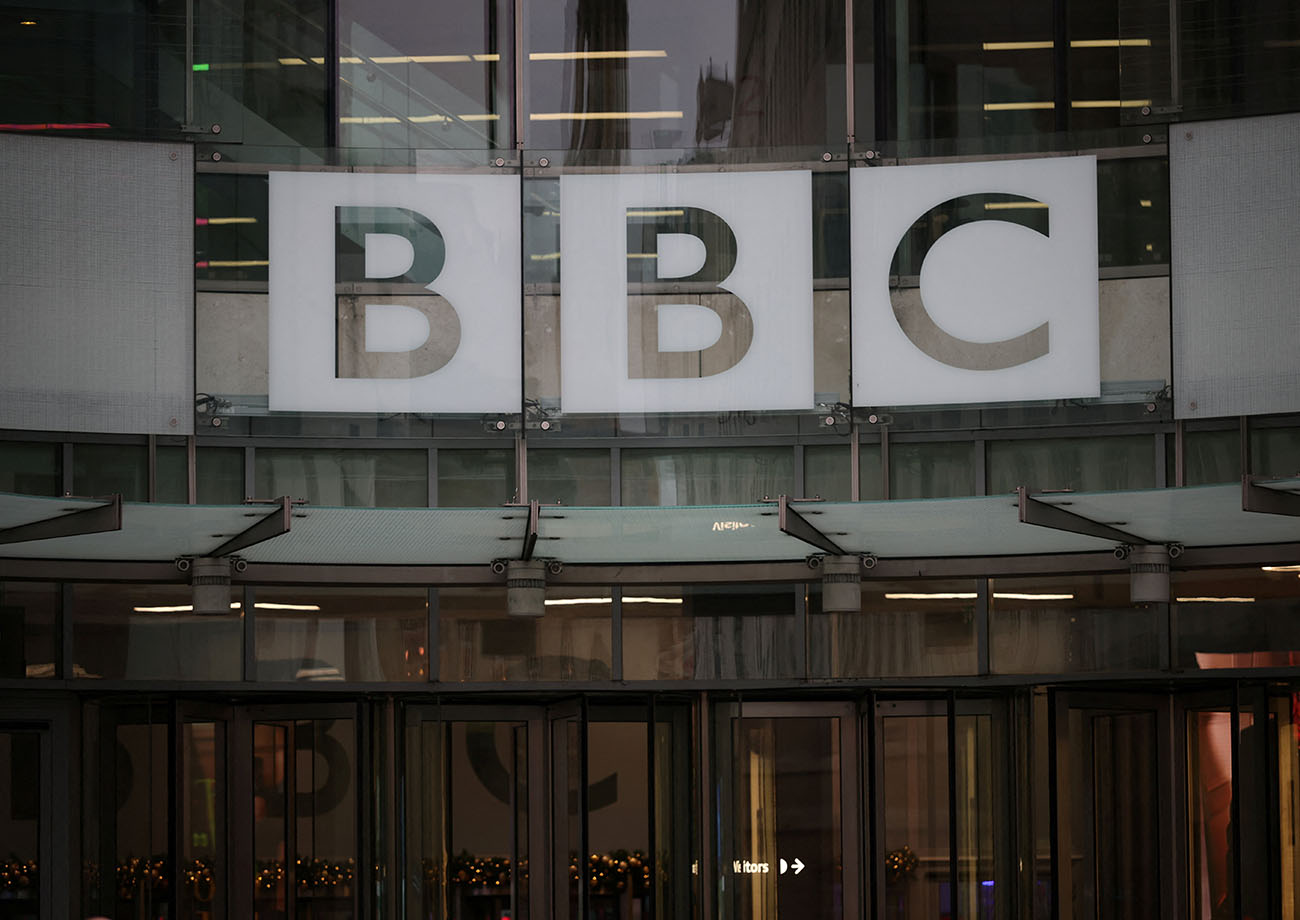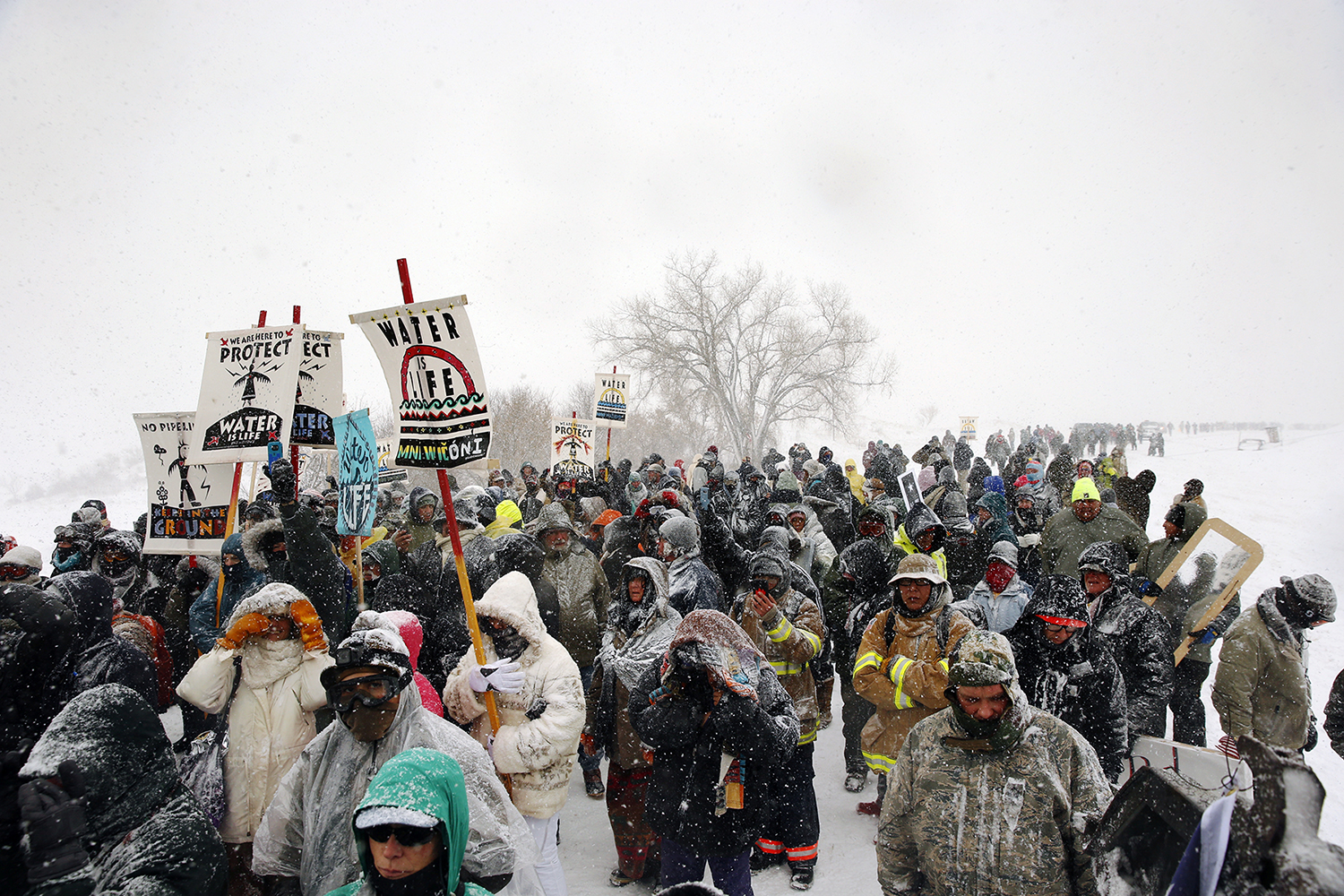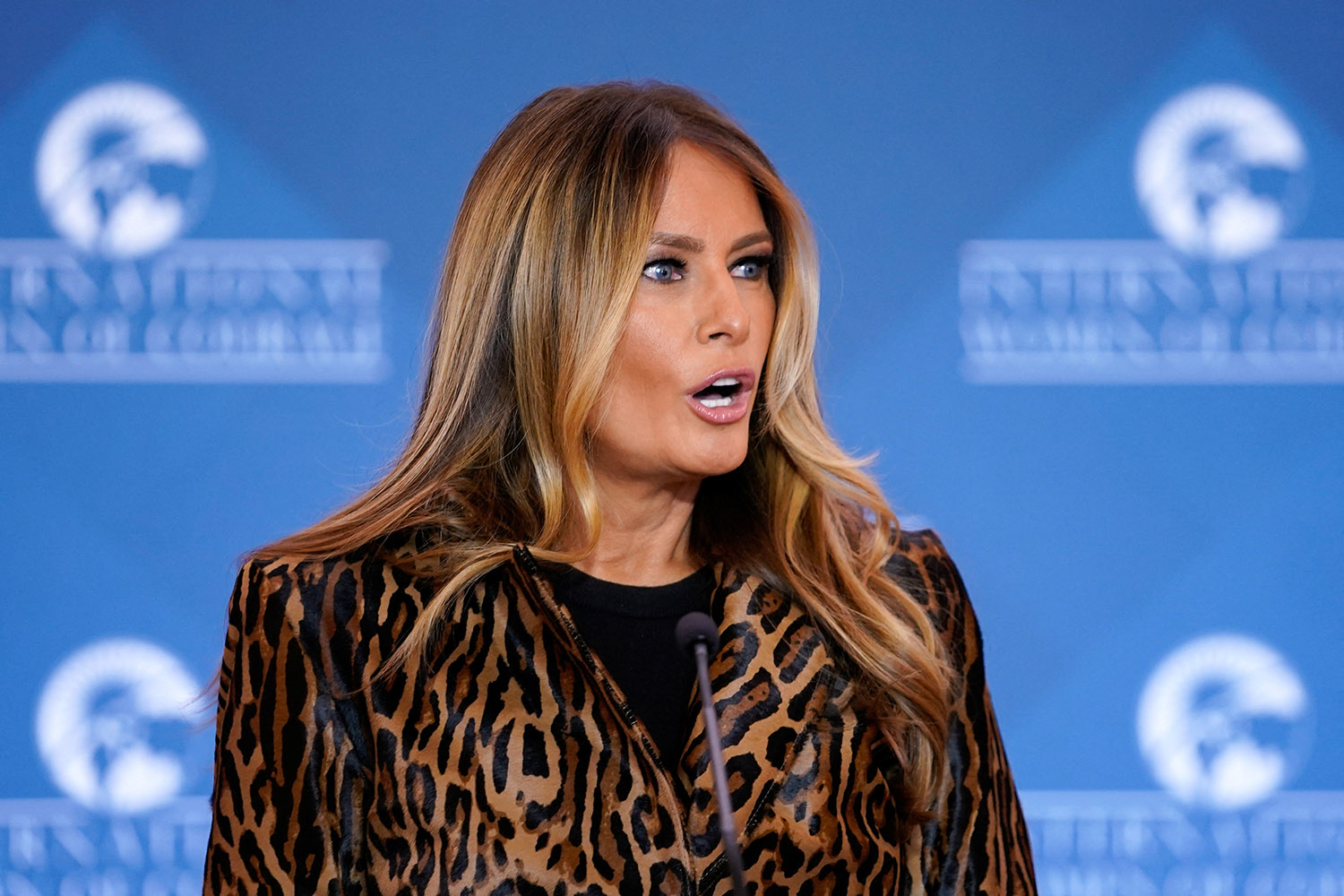The families of eight teenagers from Covington, Kentucky have filed a libel lawsuit in Kentucky’s Kenton County Circuit Court against twelve individuals for using “their large social media platforms” to circulate false statements about them. Among those listed as defendants include presidential candidate Senator Elizabeth Warren, New York Times journalist Maggie Haberman, and social activist Shaun King.
The suit, which lists the plaintiffs as “John Does 1 through 8”, centers around video from a January 18, 2019 encounter at the Lincoln Memorial between the students and a group of Native American activists.
A video of the incident, in which it initially appeared that one of the teens was taunting a Native American activist, went viral. This prompted a number of politicians, journalists, and other prominent figures to express outrage against the students in support of the Indigenous leader.
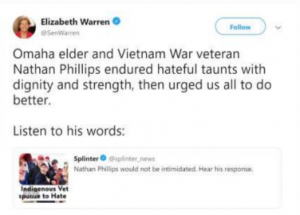
Screenshot of Elizabeth Warren’s Twitter post taken from complaint.
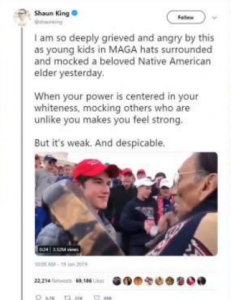
Screenshot of Shaun King’s Twitter post taken from complaint.
“Several of our Senators, most-famous celebrities, and widely read journalists, collectively used their large social media platforms, perceived higher credibility and public followings to lie and libel minors they never met, based on an event they never witnessed,” the complaint says. “The defendants were each individually offered the opportunity to correct, delete, and/or apologize for their false statements, but each refused, continuing to circulate the false statements about these children to this very day on their social media platforms they personally control.”
The decision to file suit comes days after a federal judge in Kentucky dismissed a $250 million libel case against The Washington Post brought by the family of one of the high school students at the center of the controversy. In his decision, U.S. District Judge William Bertelsman ruled that the statements the newspaper made were not actionable because they were either not about Sandmann or the remarks were opinions protected by the First Amendment. Proof of libel requires the plaintiff to prove, among other things, that the defendant published false, defamatory statements of fact. Opinions cannot serve the basis of a claim of defamation because they cannot be proven true or false.
Nonetheless, Attorney Robert Barnes who filed the suit alongside lawyer Kevin Murphy, thinks this case has a better chance of being litigated because the plaintiffs are challenging individuals rather than an institution.
“Kentucky law makes it more difficult to sue institutions than individuals in the context of libel law. Additionally, the major media institutions almost all issued corrections per my request, as defined under Kentucky law,” Barnes said in an interview with Law & Crime. “Finally, we are only suing the most egregious high-profile individuals who inflicted the most harm and refused to issue corrections.”
The plaintiffs are requesting a trial by jury, damages of up to $50,000 for each of the defendants, and attorney fees.
This story has an update.
Tags

